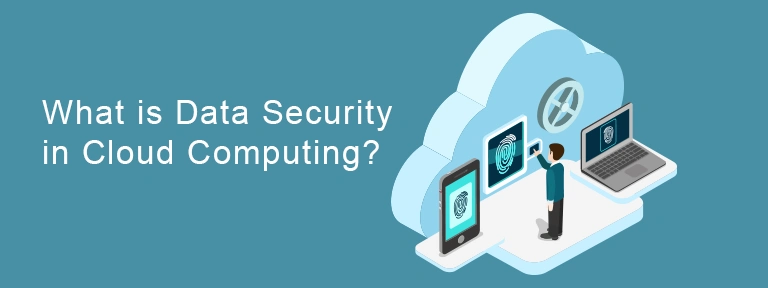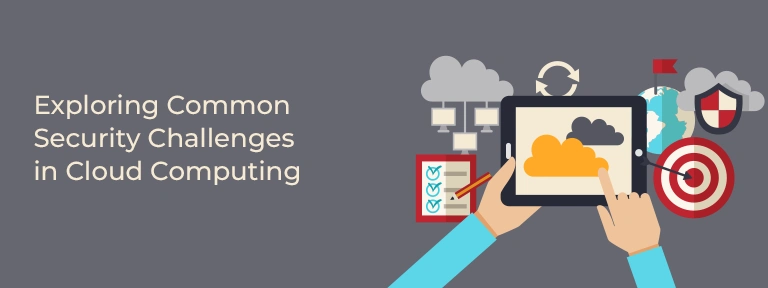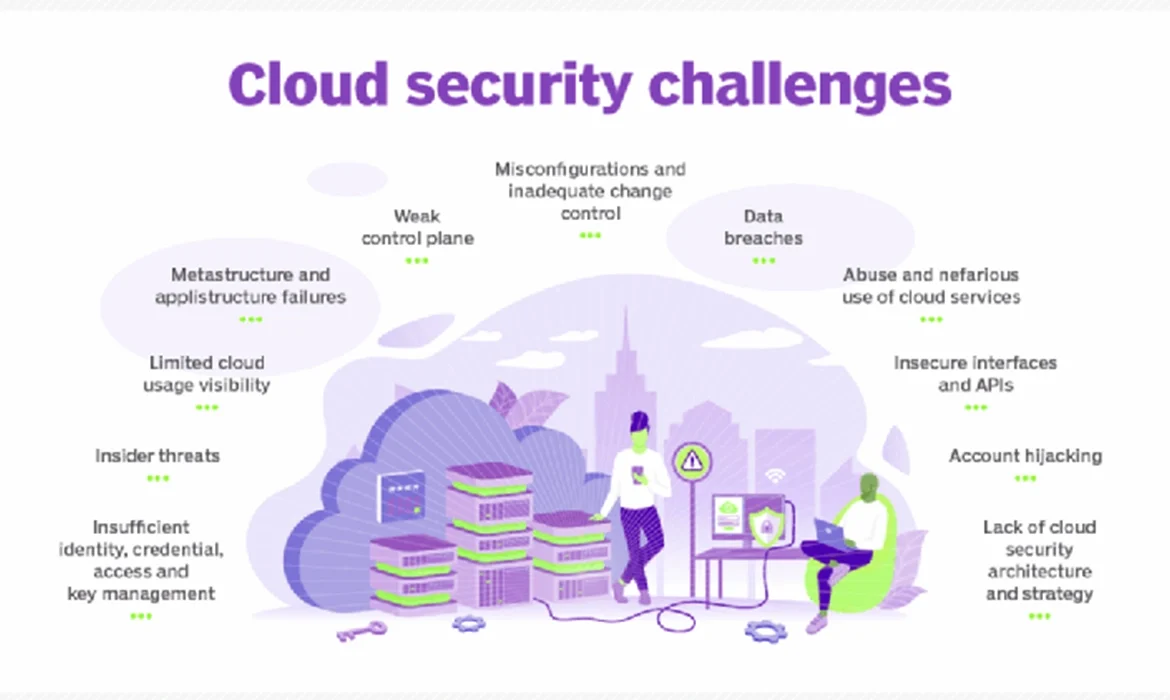The projected size of the Global Cloud Computing Market is expected to reach approximately $1143.2 billion by 2024, as outlined in a recent report. The prominence of cloud computing within businesses is evident, revolutionising how companies manage, utilize, and share their data workloads. The substantial increase in the adoption of cloud computing technology is undeniable, driven by the evolving needs of businesses.
It’s evident that the cloud offers numerous advantages, including flexibility, scalability, and exceptional performance.
Whether your company has already transitioned to the cloud or is contemplating the move, it’s crucial to consider various security aspects. Undoubtedly, cloud security issues have the potential to expose sensitive data to cyberattacks, resulting in lasting consequences that should not be overlooked.
In this article, we will briefly guide you through the primary security risks associated with cloud computing.
How secure is cloud computing?

Cloud computing has become integral to our technological ecosystem, offering convenience, scalability, and efficiency. However, concerns about the security of data stored in the cloud persist.
To assess the security of the cloud, it’s essential to understand the measures in place. Reputable cloud service providers implement robust security protocols, including encryption, access controls, and regular audits. These measures aim to safeguard data from unauthorized access, ensuring the privacy and integrity of sensitive information.
While the cloud provides a secure environment, users must play an active role in maintaining security. Implementing strong authentication practices, regularly updating passwords, and educating users about potential risks contribute significantly to overall cloud security.
Continuous advancements in cloud security technologies, coupled with proactive user practices, contribute to making the cloud a reliable and secure solution for storing and managing data. As businesses and individuals increasingly rely on cloud services, understanding and addressing security concerns remain critical to fostering trust in this technology.
What is Data Security in Cloud Computing ?

Data security in cloud computing refers to the set of measures and protocols implemented to protect digital information stored, processed, and transmitted within cloud environments. As businesses and individuals increasingly leverage cloud services for data storage and processing, ensuring the confidentiality, integrity, and availability of data becomes paramount.
Data security revolves around practices, policies, and principles designed to protect data and information within the cloud network. Its primary focus areas are as follows:
Data Integrity:
- Ensuring the accuracy and reliability of data throughout its lifecycle, safeguarding it from unauthorized alterations or corruption.
Data Availability:
- Guaranteeing that authorized users have timely and uninterrupted access to data when needed, minimizing downtime and disruptions.
Confidentiality:
- Safeguarding the privacy and restricted access of sensitive data, preventing unauthorized disclosure or access by unauthorized entities.
Exploring Common Security Challenges in Cloud Computing

While the advantages of cloud computing are substantial, the security of critical data can be compromised. It is prudent to be aware of potential threats beforehand. Here, we outline some prevalent security risks in cloud computing.
- Data Loss
One of the primary security risks in cloud computing is data loss, a critical concern given the paramount importance of data to businesses. The sudden loss of data, whether due to deletion, corruption, or a cyber attack, can be alarming. Cloud-stored data faces threats from natural disasters, malicious attacks, or data wipes by service providers. To mitigate the impact of data loss, backups play a crucial role. Cloud storage, with its resilient virtual environment, is considered highly effective for data recovery.
- Insecure APIs
Application Programming Interfaces (APIs) facilitate data synchronization and workflow automation between cloud systems. While APIs offer numerous benefits, they also introduce vulnerabilities. Insecure APIs represent a substantial danger to data security and integrity. Utilizing standard, secure APIs is essential to protect against potential threats.
- Lack of Visibility
A notable cloud security risk is the lack of visibility, particularly when transitioning data management responsibilities from an in-house team to a Cloud Service Provider (CSP). This shift can result in a loss of transparency into resources, leading to increased service usage and costs. Addressing this issue requires proactive discussion of protocols and ensuring optimal transparency of network operations and data during the transfer process.
- Compliance Challenges
Ensuring the security of client data is a primary responsibility for every organization. Governments have established standards such as GDPR, PCI DSS, or HIPAA to enhance data privacy. A strategic approach to meeting these standards involves minimizing the number of users attempting to access data. With diverse users opting for cloud infrastructure, stringent control over data access and vigilant monitoring of interactions become paramount for enhanced security.
- Data Breaches
Data breaches involve unauthorized viewing, access, or hijacking of confidential data by a third party. This stands out as a major risk in cloud security. Breaches within your cloud infrastructure can result in the exposure of sensitive information, including emails and documents, impacting your company’s reputation. Regardless of the motive behind stealing confidential data, breaches pose a significant threat to businesses relying on cloud services.
- Denial-of-Service (DoS) Attacks
Denial-of-Service (DoS) attacks lead to the complete shutdown of a network or machine, rendering it inaccessible to users. Hackers initiate these attacks by overwhelming the system with continuous requests or excessive traffic. Network downtime due to a DoS attack can result in revenue losses and harm a company’s reputation and customer relations. Cloud security experts must possess comprehensive knowledge of preventing and mitigating DoS attacks.
Wrapping Up
IT organisations and businesses need to assess security risks in the cloud computing and adopt best practices to safeguard their data. By thoroughly analyzing potential threats and strategizing solutions, you can make proactive and well-informed decisions about your IT infrastructure.
Let Infinitive Host assist you in implementing the right security tools and establishing a secure cloud infrastructure!

